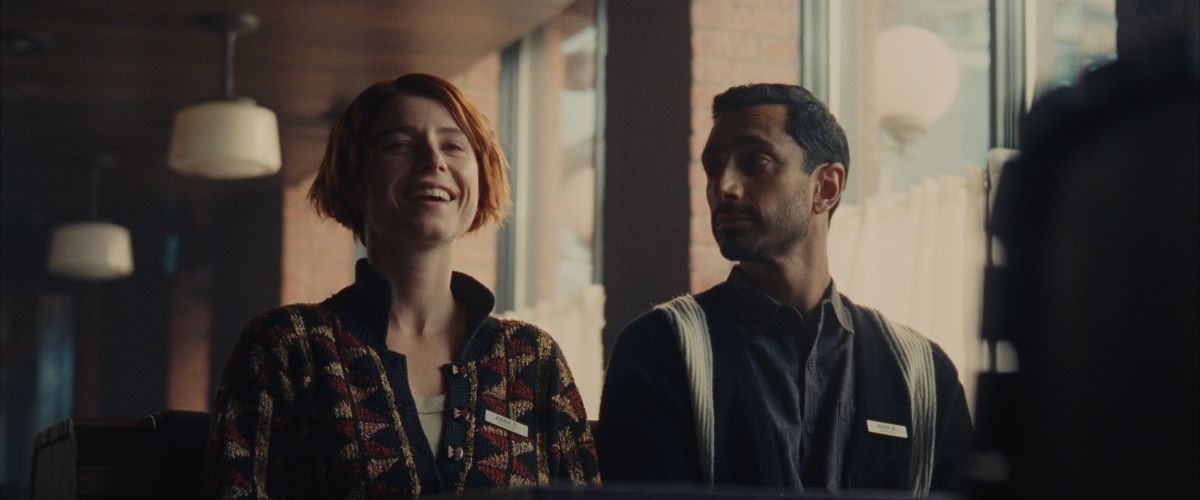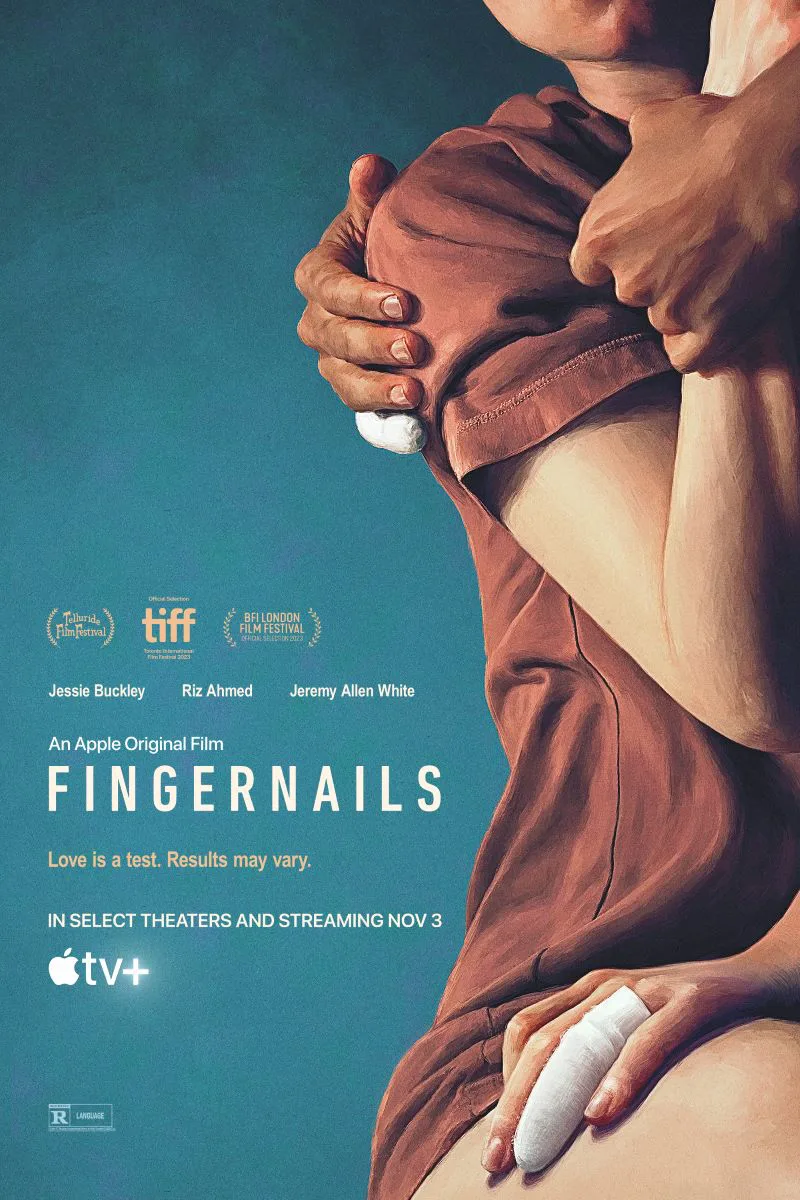Love is pain in several ways in “Fingernails.” In the near future of Christos Nikou’s dystopian sci-fi film, they’ve gotten compatibility down to a science. To measure your affection, you and your partner can each have a fingernail pulled, which will then be put into a machine, testing whether either, neither, or both of you are truly in love. While Nikou never gives us the exact science behind this testing or why a scientist couldn’t think of a less invasive or agonizing way of measuring whether this is just a fling, the existential panic felt by the inhabitants of this world is enough to pull you along.
Anna (Jessie Buckley) certainly believes in true love. An unemployed schoolteacher, Anna takes a job as an instructor at the Love Institute founded by Dunan (an aloof yet aching Luke Wilson). He founded the center just under a year ago to train people by way of shock therapy and underwater exercises for the test. An idealist, Anna enthusiastically partners with the institute’s top instructor, the stoic and forlorn Amir (Riz Ahmed), to counsel these couples. Working in close proximity, Anna and Amir begin to fall for each other, and with each furtive glance they share, Anna questions her marriage with Ryan (Jeremy Allen White) more and more. It’s a perplexing turn of events because Anna and Ryan took the fingernail test three years ago; they’re a perfect match. So why is she suddenly overwhelmed by Amir?
Nikou’s follow-up to “Apples”—a film similarly concerned with the sudden unraveling of personal truths—fits well with fellow Greek filmmaker Yorgos Lanthimos’ “The Lobster.” While both directors rely on the same dry wit and stilted expression of emotion to examine what people will sacrifice for love, with “Fingernails,” Nikou is rebelling against the notion of monogamy or long-term relationships. The anxiety here actually arises from the fear of wasting your time in a partnership that doesn’t work simply because of the commitment society demands from marriage.
It’s a fascinating mix of emotions that you wish Nikou took further. Of the dozen or so couples we see come through the institute, for instance, only one is gay, making for a limited heteronormative view of relationships. Nikou also takes very little interest in class. Through dialogue, we learn that the test is quite expensive. Does that mean a whole segment of the populace isn’t taking the test because it costs so much? Also, are political figures getting their fingernails yanked? While Nikou’s goal to solely focus on Anna and Amir initially engenders intimacy, it very quickly drifts into being myopic.
Thankfully, this deliberately paced film has Ahmed and Buckley. They’re both pulling the best out of one another, leading Buckley to hit a vulnerability rarely seen in her often showier persona. It further helps that no cinematographer has loved Ahmed and Buckley’s faces more than Marcell Rév. He adores Ahmed’s angular features and the interplay between Buckley’s smirk and neckline, lighting both actors in warm, luminescent hues of maroons, blues, and violets. So many filmmakers have somehow forgotten how to capture attractive people attractively, to the point that it undermines the movie’s intended romance. In “Fingernails,” you’re counting every long second these two sensual people aren’t together.
In fact, during Nikou’s film, I couldn’t help but think about Celine Song’s equally complex tale of star-crossed lovers, “Past Lives.” Both movies take great interest in the convergence between fate and love, in the balancing of a love triangle where there is no true villain. With “Past Lives,” some of my colleagues complained about how Song’s narrative sidesteps the dramatic complications that could have arisen if the two leads physically consummated their attraction. It’s a complaint I can’t fully get behind, if only because in real life, there is no story after that happens (not unless you want to go full-on melodrama, a tone that is the opposite of “Past Lives”). “Fingernails” comes to a similar crossroad with its leads, and the choice Nikou’s film makes is equally as truthful in its understanding of what a relationship is capable of withstanding.
In that sense, “Fingernails” could easily be accused of being anticlimactic. The body horror of seeing fingernails pulled isn’t as invasive as you’d expect. It’s tastefully rendered in a way that elicits turning stomachs by what’s not seen. The quiet soulfulness of Buckley, Ahmed, and White makes for a banquet of slow cinema, one that haunts more than shocks in its parsing of love, lust, and longing.
This review was filed from the 2023 Chicago International Film Festival. “Fingernails” opens in limited release and on Apple TV+ on November 3rd.




















